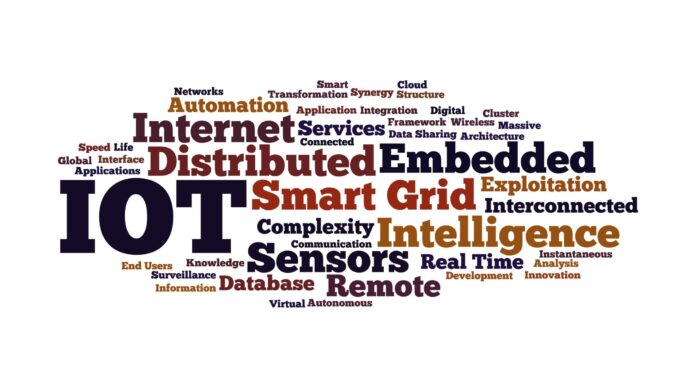Sprint has some inroads into retail, logistics; T-Mobile US biding its time
WASHINGTON – The “Internet of Things” is quickly popping up on the radar of enterprises across verticals, and all four of America’s major carriers – AT&T Mobility, Verizon Wireless, T-Mobile US and Sprint – have taken notice of the potential transformative power of the technology.
As cellphone penetration in the U.S. hits 100%, major carriers are looking for new ways to grow their business, and IoT for carriers promises to be an opportunity to do just that.
IoT for carriers means leveraging their technology, and data, across a number of platforms and industries while creating new revenue streams. IoT can loosely be divided into two main categories: Industrial IoT, which appeals to businesses and is geared toward macroscale solutions like smart cities, cargo tracking or precision farming; and consumer IoT, designed to appeal directly to consumers with solutions like smart homes, connected cars and wearables. Because of the evolving nature of the IoT, major carriers are still exploring and experimenting with what types of solutions are practical and profitable.
Let’s take a look at IoT for carriers with focus on the big four U.S. players.
AT&T Mobility
AT&T Mobility is currently the undisputed leader of the major carriers for both the industrial and consumer IoT marketplaces. On the industrial side, AT&T Mobility has 23 million IoT SIMS in service and has IoT agreements with more than 136 companies across numerous industries. The carrier is focusing on a number of large-scale verticals, the most notable of which is probably smart cities and logistics. AT&T Mobility has created an entire business unit with the goal of deploying smart city technology.
According to data provided by Current Analysis, AT&T Mobility isn’t looking at IoT as an opportunity on a strictly national level, but rather a global one. The carrier’s new Global SIM card allows its IoT systems to work anywhere in the world, even if AT&T Mobility has no network coverage there, which makes its IoT systems ideal for logistics tracking on a global scale. The Global SIM also can be used on any IoT device, providing the carrier with the means to take its IoT business anywhere in the world.
On the consumer side, AT&T Mobility has defined its dominance by offering bundled IoT services with its regular offerings. AT&T Mobility subscribers can receive IoT smart home and security systems as part of their regular subscription, and anyone who has an On Star system in their car can keep it connected through AT&T Mobility for a monthly fee after the free trial period runs out.
Verizon Wireless
Verizon Wireless has proven to be more cautious when it comes to IoT. While not experimenting as freely as AT&T Mobility, Verizon Wireless has 15 million IoT SIMs and a healthy portfolio of IoT partners in automotive, logistics and energy verticals.
The carrier’s business model, when looking at IoT, has been to work in conjunction with its ISP business by allowing consumers and businesses to set up their IoT systems utilizing its fiber-based FiOS service. As of late, Verizon Wireless has indicated it will make a bigger push into both consumer and industrial IoT. According to Current Analysis, Verizon Wireless’ website has more IoT products for sale than any other major carrier and is planning a major conference on Oct. 28 in San Francisco where it will lay out its vision of IoT.
T-Mobile US
The nation’s third-largest major carrier seems to be the least interested in IoT technology. On the industrial IoT side, T-Mobile US has focused on selling wholesale to mobile virtual network operators, although it has now started to sell direct as well.
On the consumer side, T-Mobile US appears focused on its (so far quite successful) growth strategy of winning over customers of rival carriers, rather than trying out new products with uncertain return on investment. However, T-Mobile US is by no means out of the IoT game. At a conference earlier this year, a senior T-Mobile US exec described his company as having seeds planted in the IoT space.
Industry experts have indicated to RCR Wireless News that T-Mobile US is allowing its competitors to explore the capital-intense IoT products while it sees what works and what doesn’t before it moves to carve out its own niche in the IoT space.
Sprint
America’s fourth-largest carrier, Sprint, which is owned by Japanese interest SoftBank, has moved from an opportunistic approach to IoT to one that is more focused on both the industrial and consumer markets.
Sprint has invested in logistics and retail IoT systems as well as “value segments” of smart city technology such as utilities and public safety. On the consumer side, Sprint has a number of accelerator programs in which it is partnering with startups to develop new IoT solutions. Sprint hasn’t, however, allocated the same kind of capital into the IoT space that AT&T Mobility and Verizon Wireless have.
Despite being a developing market sector, IoT for carriers provides a natural means to evolve. IoT is indicative of an economy and world that is becoming more and more reliant on connectivity with the smartphone serving as the universal hub for everything. The major carriers, having provided the means for every person to connect to everyone else, can now only grow if they look at ways for everything to connect to everything else.

